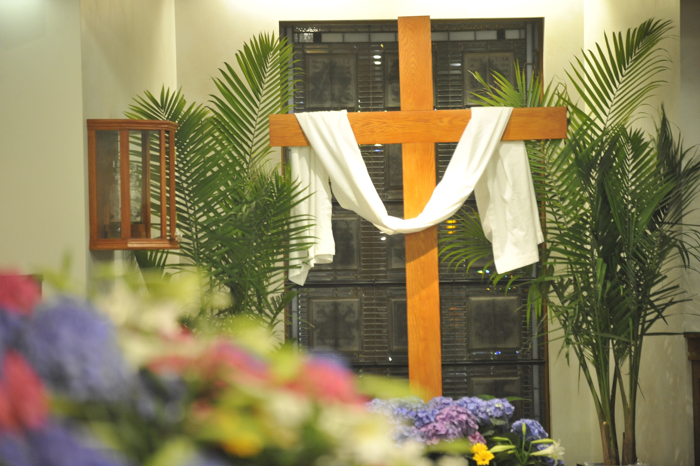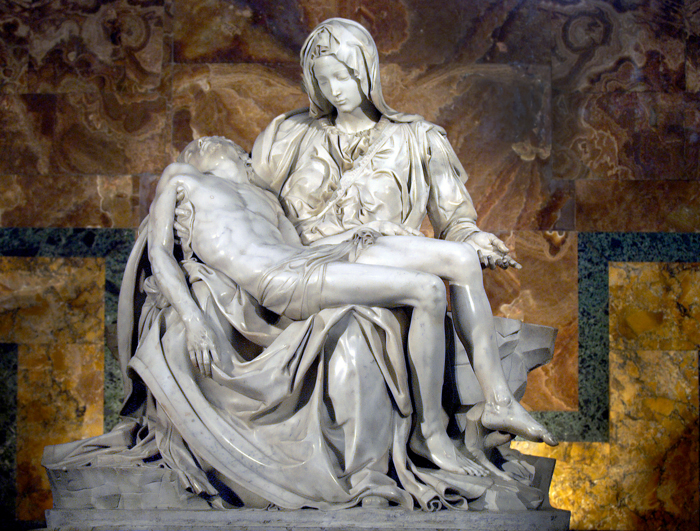- Home
- Our Community
- Our Faith
- Our Ministries
- Parish Life
- Bulletin
- Contact Us
- Search

Fasting and Abstinence 守大小齋
守齋的意義和規則
[ English | 中文 ]

守齋的意義
- 為紀念耶穌苦難,主耶穌為代人贖罪,甘願受死。我們守大小齋,在飲食上做些刻苦,是為使我們體會到身體上的不好受,才體會到耶穌為我們受難,是多麼不容易。現在我們藉守齋克己,就是紀念耶穌為我們所作的偉大犧牲,永遠感謝祂的救恩。
- 藉大小齋得以清心寡慾作補贖,賠補我們所犯罪惡,進而修德立功,獲得心靈的淨化,促進靈修生活的進步,永久熱愛天主。
大小齋規則
基督徒生活中的其中一項要務,乃透過悔罪和克己實踐皈依。悔罪首先是一種信仰行為,目的是愛和皈向天主;否則就僅是形式主義和法利塞主義而已。
新聖教法典宣稱:
- 普世教會的悔罪日期是全年之中的每星期五以及整個四旬期。
- 逢星期五守小齋,除非當日為特別慶節。守小齋的規定,適用於所有 14 歲以上的人士。
- 每年聖灰瞻禮日及耶穌受難日守大小齋。守大齋的規定適用於年齡在 18 歲以上及 60 歲以下的人士。
傳統上,所稱的小齋即是放棄取用熱血動物的肉類食品。所謂大齋,即在小齋的基礎上,一天只可飽餐一頓,可選擇在早上及晚間取用少量食物,其餘時間只可取用流質飲品,但盡可能以減少享受為原則。 病人、身體衰弱者及孕婦可免守大小齋。
[ English | 中文 ]

The True Meaning of Fasting and Abstinence
- Help us remember the passion of Jesus who died for the atonement of our sins. In observing fasting and abstinence, we do a little sacrifice in our meals to remind ourselves of Jesus who suffered and died for us. This little discomfort and denial make us realize the great discomfort and denial of Jesus during His great sacrifice; it prompts us to always thank Him for His saving grace.
- By observing fasting and abstinence, we learn to curb our wants in a penitential way to make up for the sins we committed. These deeds can also be considered as some works of piety that cleanse our souls, enhance our spiritual growth and perpetuate our love for God.
The Rules for Fasting and Abstinence
One of the foremost duties of a Christian is to profess his faith through repentance and sacrifice. Repentance is an action to show one's love and belief in God, for belief without action is, like what Jesus has once criticized the Pharisees, only outward appearance alone.
The Code of Canon Law prescribes:
- The penitential days and times in the universal Church are every Friday of the whole year and the season of Lent.
- Abstinence from meat is to be observed on all Fridays, unless a solemnity should fall on a Friday. The law of abstinence binds those who have completed their fourteenth year.
- Abstinence and fasting are to be observed on Ash Wednesday and Good Friday. The law of fasting binds those who have attained their eighteenth year, until the beginning of their sixtieth year.
Traditionally, abstinence forbids the use of meat of warm blooded animals. Fasting includes abstinence and taking only one full meal. Some food (not equaling another full meal) is permitted at breakfast and around midday or in the evening - depending on when a person chooses to eat the main or full meal. The sick, the weak and the pregnant are not bound by the law of abstinence and fasting.

